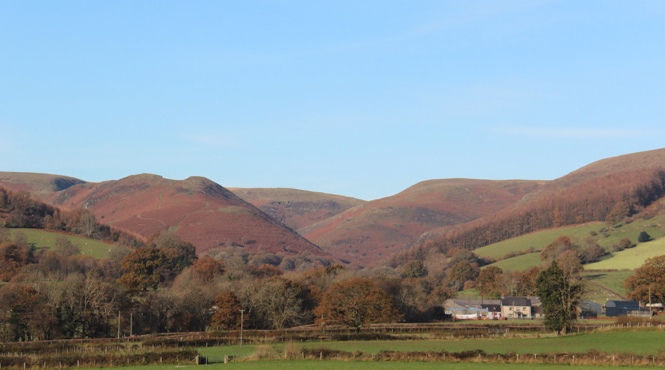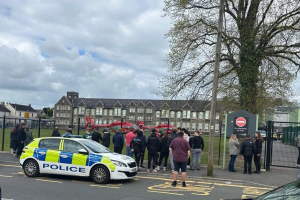 DURING the 1980s and 1990s, a local campaign was fought by residents of the Gwenlais Valley about an interim development order 1947. The battle ended up in the High Court in London. However, due to the passage of the 1991 Minerals Act, the business involved in the battle withdrew their application and a public inquiry was ordered by the then Conservative Secretary of State for Wales.
DURING the 1980s and 1990s, a local campaign was fought by residents of the Gwenlais Valley about an interim development order 1947. The battle ended up in the High Court in London. However, due to the passage of the 1991 Minerals Act, the business involved in the battle withdrew their application and a public inquiry was ordered by the then Conservative Secretary of State for Wales.
Llansteffan resident John Moore was involved with the campaign when he lived near the valley with his family. Also involved in the campaign were local residents Robert Allen and Peter Stringer. The story of the campaign lasted over 10 years and were reported on both local and national news; also the group ‘The Campaign for the Protection of the Gwenlais Valley’ lobbied every MP in the country, which had an influence on the then Conservative Government to review the planning laws.
The story began when a quarry operating business wanted to re-open the Glangwenlias valley, who claimed to have the permission for the 360 acres; however, due to searches on property documents during a sale, this was not revealed and the battle began to save the quarry.
John Moore, who lived on Glangwenlais farm with his wife and children, had a visit from Peter Roberts who also lived locally to inform them of the firm’s intention. After that meeting, John was invited to go along to a local meeting with the group at the business’ offices to seek an explanation.
John Moore said of this: “It was totally unbelievable as the research had shown no planning consent and we were devastated but it meant we had a fight on our hands. I contacted Robert Allen and we began researching local planning offices for Dinefwr and the County Council.”
After John and Robert began the process, local resident Peter Stringer became involved, who John calls a ‘guiding light’ to the process and helped their cause dramatically. Peter suggested that they create a video highlighting this particular problem which began the process of local press highlighting the campaign and problem. An article written by Chris Brazier for the Sunday Observer led to other newspapers and TV shows getting involved. BBC Countryfile dedicated a programme to the situation, as did HTV.
After the programmes aired and the group took copies to local councils and the County Council, local residents began to question the order and the council took note about the situation. During the 1990s, the battle went to the High Court between the firm, Dyfed County Council and John Moore, of which he described: “It was frightening. When we were up in the court, it was awe inspiring after seeing it on the TV. However, we were there to be made party to the proceedings but due to the government’s 1991 Minerals Act, the case was withdrawn by McAlpine.”
It was under the new act that the quarry operators applied for a new planning permission, to which Mr Moore and the whole group objected. The case was taken to the Welsh Secretary, who called a public inquiry into the matter in 1993. During the inquiry, it was found by an inspector that the original planning consent was only for a limited area of the valley and the inquiry was backed by the Secretary of State. The consent said that the operator could continue to work on a specific set of land which they had already obtained. The business then appealed to the House of Lords, which took the battle to the High Court for the second time, where it was defended by Pat Langford, ending successfully in an out of court settlement.
By this time, John Moore and his wife had moved away. He would like to pay tribute to the work of Peter Stringer and Robert Allen for their work during this time, who have recently passed away.
He said: “Not only were they outstanding men but they became very good friends of ours. During this time, we worked collectively to highlight this particular situation and I think that without their help and support, it wouldn’t have been highlighted too largely. Our work was also supported by many others who I would like to thank.”

















Add Comment